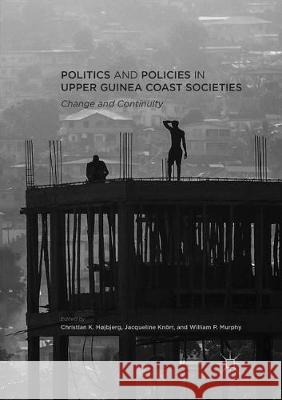Politics and Policies in Upper Guinea Coast Societies: Change and Continuity » książka
topmenu
Politics and Policies in Upper Guinea Coast Societies: Change and Continuity
ISBN-13: 9781349957040 / Angielski / Miękka / 2018 / 342 str.
Kategorie BISAC:
Wydawca:
Palgrave MacMillan
Język:
Angielski
ISBN-13:
9781349957040
Rok wydania:
2018
Wydanie:
Softcover Repri
Ilość stron:
342
Waga:
0.43 kg
Wymiary:
21.01 x 14.81 x 1.91
Oprawa:
Miękka
Wolumenów:
01
Dodatkowe informacje:
Wydanie ilustrowane











